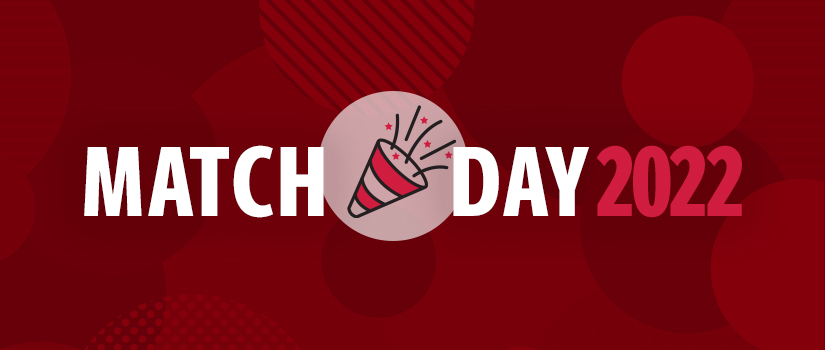Come mid-March each year, student pharmacists around the country anxiously await that all-important email from the American Society of Health-System Pharmacists, letting them know if they will transition to a postgraduate year one residency (PGY1) and for those already in residency, if they will continue to a postgraduate year two residency (PGY2). This year’s Match Day falls on March 16.
The University of South Carolina College of Pharmacy has a rich history of students matching to post graduate residencies, representing that big next step in their pharmacy careers. The process is extremely competitive, with approximately 7,500 graduates pursuing a first-year residency with only 4,000 positions available.
I believe the Pharm.D. is the most versatile degree in health care ...
Brandon Bookstaver, Pharm.D. Director, Residency and Fellowship Training
“Some will be left out as the demand far exceeds the supply,” says Brandon Bookstaver, ‘04, director of the college’s Residency & Fellowship Training program and associate professor. “While PGY2 training is not quite as competitive, approximately 25 percent of residents pursuing specialty training do not match for a second-year residency.”
Bookstaver also points out that residency is not something all student pharmacists should pursue.
“I believe the Pharm.D. is the most versatile degree in health care, and not all professional aspirations in the pharmacy profession call for residency training,” he says. “If your desire is to work in direct patient care though, I do feel residency training should be an initial goal following graduation.”
Preparing for interviews for prospective residency positions can be the most stressful part of the match process. Bookstaver leads sessions for students to help build their confidence and planning.
“We discuss that, first, you have to get the interview,” he adds, “then we work to instill that confidence to demonstrate why you would be a great fit with any particular program. We combine seminars on interview strategies and set up mock interviews with clinical faculty, preceptors, current residents and others.”
The past two years have been more challenging in terms of interviews due to COVID-19 protocols and safety guidelines as many interviews were conducted virtually.
Bailey Smith, who is hoping to pursue a career as a critical care pharmacist, attended showcases and worked with her mentors and preceptors in first determining where she wanted to apply for a residency.
“Virtual interviews are a bit harder,” she says. “Being on camera for seven hours is challenging. I felt that my in-person interviews were more conversational and relaxed.”
Students must also prepare presentations for the interview process. Kinsey McClure prepared for interviews by keeping a list of each significant intervention on which she worked when she first began her fourth-year rotations.
“You are always asked to talk about how you would respond to a certain situation and having that documentation to use as a guide helped significantly,” she says. “I also focused on areas where I knew I could improve so that I could demonstrate how I had grown in those areas.”
Katie Petscavage has already committed to her first year of a postgraduate position in regulatory affairs strategy with Novartis in conjunction with Rutgers Pharmaceutical Industry Fellowship.
“I have been working with Nephron Pharmaceuticals Corporation in their regulatory department and was interested in training in regulatory strategies concerning new drug applications,” she says.
Lauren Walters will head to Washington, D.C. for an executive residency in publications with the American Pharmacists Association, where she will work with the publishing team to develop innovative training materials. Lauren is enrolled in the dual Pharm.D./Master of Health Administration program.
“I’ve always known I wanted to help people, then when I began my administration classes, I wanted to incorporate what I learned with my pharmacy education,” she says. “This is a unique opportunity to do that.”
Erik Preheim took a different path to his career in pharmacy.
“I graduated from the University of North Texas in 2012 and subsequently moved to South Carolina to pursue opportunities in film and TV broadcasting,” he says.
He worked at Walgreens while pursuing those opportunities and eventually became a pharmacy technician. His passion for helping patients with medications, educating them about the appropriate use of their medicines, and a conversation with his manager and his family led Preheim to apply to the College of Pharmacy.
“I hope to continue growing in the ambulatory care arena, where many of the opportunities align with my passion for pharmacy in direct patient care, education and access to medications,” he says. “The whole setting feels collaborative and team-oriented, and I value that aspect of pharmacy.”
When it comes to deciding where to apply, McClure suggests it is best to follow your instincts.
“I put a great deal of time into learning about the various programs available and what they offered, including what second-year programs they offer, the resources available for research projects, and of course, the location,” she says.
Come Wednesday morning around 8:30 a.m., students will begin to learn where they will head for the next year.
“A lot of energy, preparation and sacrifice has gone into preparing for and pursuing residency training,” says Bookstaver, “so naturally there is great meaning to that. Learning where you will spend at least the next year is possibly even more exciting.”
Follow along as our students share their exciting news on the College of Pharmacy’s social media pages with #UofSCPharmMatch and #RxMatchDay.
Topics: Match Day, Postgraduate Training
